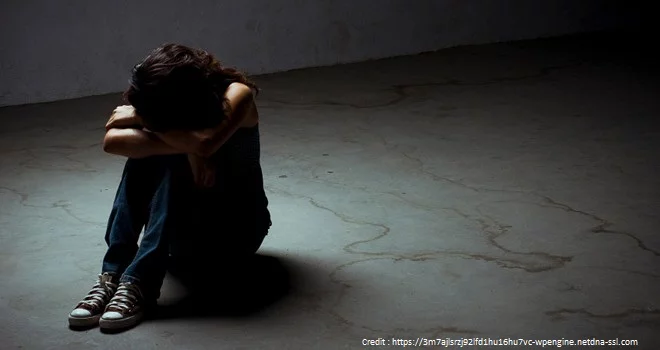Many people who enter a rehabilitation centre are struggling with more than one condition. Alcohol or drug abuse may be their immediate concern, but issues of this type are often reinforced by an underlying layer of post-traumatic stress disorder (PTSD) which created the conditions necessary for addiction to take hold. In order to break the cycle of PTSD and substance abuse, it is not enough to address the addiction alone. All related issues must be dealt with, in order to pave the way for a complete recovery.
Fear, Anxiety, and the Role of Endorphins
Traumatic experiences can have long-term psychological effects, regardless of when in a person’s life they occur. Abuse, sexual assault, experiencing or witnessing violence, death of a loved one – moments such as these can cause extreme anxiety of a sort that our minds are not prepared to deal with. The body’s response is to release endorphins to cope with the immediate stress of the situation. When the effect of the endorphins wears off, the body begins to seek something to replace them.
At the same time, the traumatic event stays in the mind of the victim, unable to be processed. It may be replayed over and over again, bringing painful memories back into consciousness. Words, sounds, images and feelings that remind the person of the traumatic incident can trigger flashbacks. The all-too-common phenomenon of soldiers returning home with PTSD is confirmation that such a difficult ordeal can affect even the strongest members of society.
Increased Use of Alcohol or Drugs to Numb the Pain
Faced with such a difficult reality, many people in this position try to overcome it on their own, and fail to get treatment for PTSD. But sooner or later they begin seeking an escape from their memories, and often find refuge in the numbing effects of drugs or alcohol – both of which can deliver the endorphin rush that the body is also seeking.
The more that people turn to these chemical-based sources of relief, the higher their tolerance will become – and so they feel the need to increase their dose to unhealthy levels. Even in doing so, however, relief from their traumatic memories remains only temporary, as the underlying cause of the trauma still has not been addressed adequately.
Compulsive Substance Abuse Leads to Increased Anxiety
At this point, the powerful chemical influence begins to seriously affect the person’s ability to perform well in their job or private life. Their reasoning, judgment and decision-making capabilities become impaired, which can lead to serious consequences – such as losing one’s job, causing an accident, or failing in personal relationships. These failures, in turn, increase the perceived need to drink or use drugs, so as to escape a pain that grows larger with every mistake they make.
By this time, the need for PTSD and substance abuse treatment becomes urgent. Immediate care in an integrative trauma treatment centre is necessary to break free from an increasingly dangerous situation and guide the affected person back to a healthy lifestyle once again.
How the Cycle Can be Broken
Since the patient’s condition has multiple causes, any effective solution will need to treat each one specifically. A detox programme will be necessary to provide an immediate physical recovery, which is then continued through addiction therapy and counselling so that gains in health can be maintained over time.
The addiction recovery process alone requires great commitment and support, but it also must be combined with special therapy that addresses the underlying issues that first sparked the cycle of PTSD and substance abuse. These two parallel roads to recovery must be travelled in coordination with each other, and so the healing process should begin in an integrative trauma treatment centre that can effectively treat a dual diagnosis of this type.
The recovery process will likely involve methods and procedures such as:
Individual Psychotherapy
to build a pattern of behaviour strong enough to resist the triggers for their PTSD and the temptations of addiction;
Group Counselling
to develop a network of support, advice and friendship that will help the patient find their footing for a healthier lifestyle;
Medication
to address any psychological conditions that accompany addiction; and
Trauma-Focused Therapy
to address the root cause of trauma and issues related to PTSD.
Regarding recovery from trauma and PTSD, a variety of effective techniques have been developed in recent decades to help patients make the transition to a healthier way of being. These include an emphasis on trauma resiliency, in which somatic therapy is used to let patients isolate nervous system responses to stress and then use mindfulness training to rebalance their mental state.
Cognitive Behavioural Therapy can help retrain the mind, letting the patient adapt to and ultimately accept sounds and images that would normally trigger memories of past traumatic events. Eye Movement Desensitisation and Reprocessing achieves similar results by helping the mind re-interpret sensitive imagery in a more benign way.
Activities such as yoga can also help patients manage their tension, stress and trauma, with focused practice enabling relief from PTSD symptoms when they appear. Resources like these are easily used when needed, giving patients a measure of control over the messages sent to and from their nervous systems.
PTSD and Substance Abuse Treatment at The Dawn
Located in Chiang Mai, The Dawn offers a relaxing, secluded setting with experienced medical teams and therapists who can help you or a loved one recover from the cycle of substance abuse and trauma. Our counselling and therapy sessions are an effective part of a wider programme that can address all of the causes of addiction and PTSD, helping bring a happier and more balanced life within reach.
If you or a loved one could benefit from dual diagnosis treatment of substance abuse and trauma, contact The Dawn today, recovery is within reach.
Related Posts
 Trauma Therapy – How to Overcome a Painful Past and Create a Better Future
Many people who seek trauma therapy suffer consequences of one or more traumatic events in their life. Even though many find ways to process trauma effectively and eventually resolve their...
Trauma Therapy – How to Overcome a Painful Past and Create a Better Future
Many people who seek trauma therapy suffer consequences of one or more traumatic events in their life. Even though many find ways to process trauma effectively and eventually resolve their...
 PTSD and Personal Relationships: The Impacts of Trauma on How We Relate
The development of PTSD following a traumatic event can make it difficult to move past the pain, fear, and horror of that moment, hindering one’s ability to naturally grow and...
PTSD and Personal Relationships: The Impacts of Trauma on How We Relate
The development of PTSD following a traumatic event can make it difficult to move past the pain, fear, and horror of that moment, hindering one’s ability to naturally grow and...
 Childhood Trauma: Causes, Symptoms and Treatment Techniques That Can Help You Move Forward
The National Institute of Mental Health in the United States defines childhood trauma as, ‘’The experience of an event by a child that is emotionally painful or distressful, which often results in...
Childhood Trauma: Causes, Symptoms and Treatment Techniques That Can Help You Move Forward
The National Institute of Mental Health in the United States defines childhood trauma as, ‘’The experience of an event by a child that is emotionally painful or distressful, which often results in...
 How Does EMDR Work?
EMDR stands for Eye Movement Desensitization and Reprocessing therapy. It is primarily used for treating post-traumatic stress disorder, or PTSD, including simple and complex traumas. EMDR is a relatively new...
How Does EMDR Work?
EMDR stands for Eye Movement Desensitization and Reprocessing therapy. It is primarily used for treating post-traumatic stress disorder, or PTSD, including simple and complex traumas. EMDR is a relatively new...





